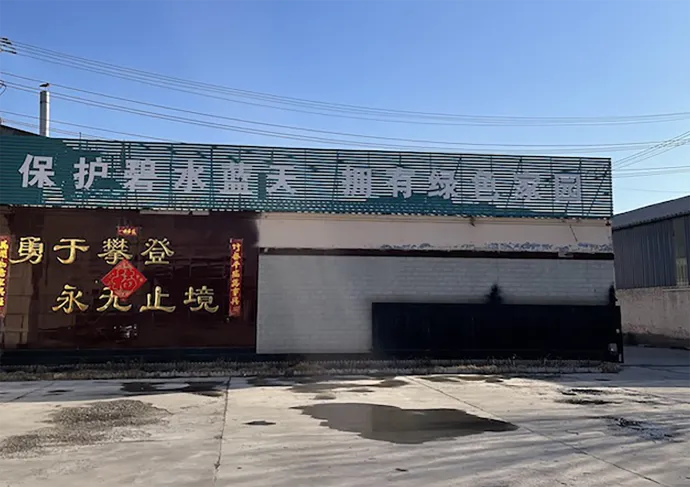Dec . 04, 2024 17:00 Back to list
mineral fiber board
The Advantages and Applications of Mineral Fiber Board
Mineral fiber board, also known as mineral wool board or fiberglass board, is a highly versatile building material that has gained popularity in various construction applications due to its unique properties. Made from natural and recycled materials, it provides excellent thermal and acoustic insulation, fire resistance, and durability. This article delves into the advantages of mineral fiber board and its wide range of applications in the construction industry.
What is Mineral Fiber Board?
Mineral fiber board is produced by binding mineral fibers, such as rock wool or glass wool, with resin or binder to create a dense, rigid board. The manufacturing process involves melting the raw materials at high temperatures to produce fibrous strands that are then formed into sheets. The end product is a light, strong, and non-combustible board that meets stringent building standards and regulations.
Key Advantages
1. Thermal Insulation One of the standout features of mineral fiber board is its exceptional thermal insulation properties. Its low thermal conductivity helps in maintaining comfortable indoor temperatures, reducing heating and cooling costs. As a result, mineral fiber board is an ideal choice for energy-efficient buildings, contributing to sustainability efforts.
2. Acoustic Performance The porous structure of mineral fiber board allows it to absorb sound waves effectively, making it a popular choice for soundproofing applications. It is often used in offices, recording studios, and theaters where sound quality and control are paramount. By installing mineral fiber boards in ceilings and walls, architects can achieve better acoustics and enhanced privacy.
3. Fire Resistance Mineral fiber board is inherently fire-resistant due to its non-combustible material composition. This quality makes it an essential component in fire-rated wall assemblies and ceilings. It helps slow down fire spread, providing occupants with more time to evacuate and reducing property damage. Building codes often mandate the use of fire-rated materials in commercial and industrial spaces, where mineral fiber board excels.
4. Moisture Resistance In addition to its thermal and acoustic properties, mineral fiber board is resistant to moisture, making it suitable for use in humid environments like kitchens and bathrooms. This resistance helps prevent mold growth and prolongs the lifespan of the material. As a result, it is commonly used in insulation applications for HVAC systems and ductwork.
mineral fiber board

5. Lightweight and Easy to Handle Mineral fiber boards are lightweight compared to other insulation materials, making them easier to transport, handle, and install. This attribute can significantly reduce labor costs and installation time during construction projects.
Applications of Mineral Fiber Board
Mineral fiber boards are utilized in various applications across multiple sectors
- Commercial Buildings In corporate offices, schools, and hospitals, mineral fiber board is frequently used for ceiling tiles and wall panels. Its acoustic properties create pleasant working and learning environments.
- Industrial Facilities Many manufacturing plants incorporate mineral fiber board for insulation in machinery, ductwork, and equipment rooms. Its fire resistance is crucial in safeguarding operations and ensuring compliance with safety regulations.
- Residential Construction Home builders often utilize mineral fiber board as insulation in attics, walls, and floors to enhance energy efficiency and sound control. Its moisture resistance also makes it a suitable option for bathrooms and laundry rooms.
- Transportation In the automotive and aerospace industries, mineral fiber boards are used for soundproofing and providing thermal insulation, contributing to driver and passenger comfort.
Conclusion
In summary, mineral fiber board serves as an excellent resource in modern construction due to its numerous advantages and versatility. With its impressive thermal and acoustic properties, fire resistance, and moisture control, it is a sought-after material for commercial, industrial, and residential applications. As sustainability gains prominence in the building sector, the use of mineral fiber board represents a practical choice that aligns with energy efficiency goals. By incorporating mineral fiber board into construction projects, builders can create safer, more comfortable, and energy-efficient spaces for future generations.
-
Quality Ceiling Trap Doors & Access Panels | Easy & Secure AccessNewsAug.30,2025
-
Durable Ceiling T Grid Systems | Easy InstallationNewsAug.29,2025
-
PVC Gypsum Ceiling: Durable, Laminated Tiles for Modern SpacesNewsAug.28,2025
-
Pvc Gypsum Ceiling Is DurableNewsAug.21,2025
-
Mineral Fiber Board Is DurableNewsAug.21,2025
-
Ceiling Tile Clip Reusable DesignNewsAug.21,2025







